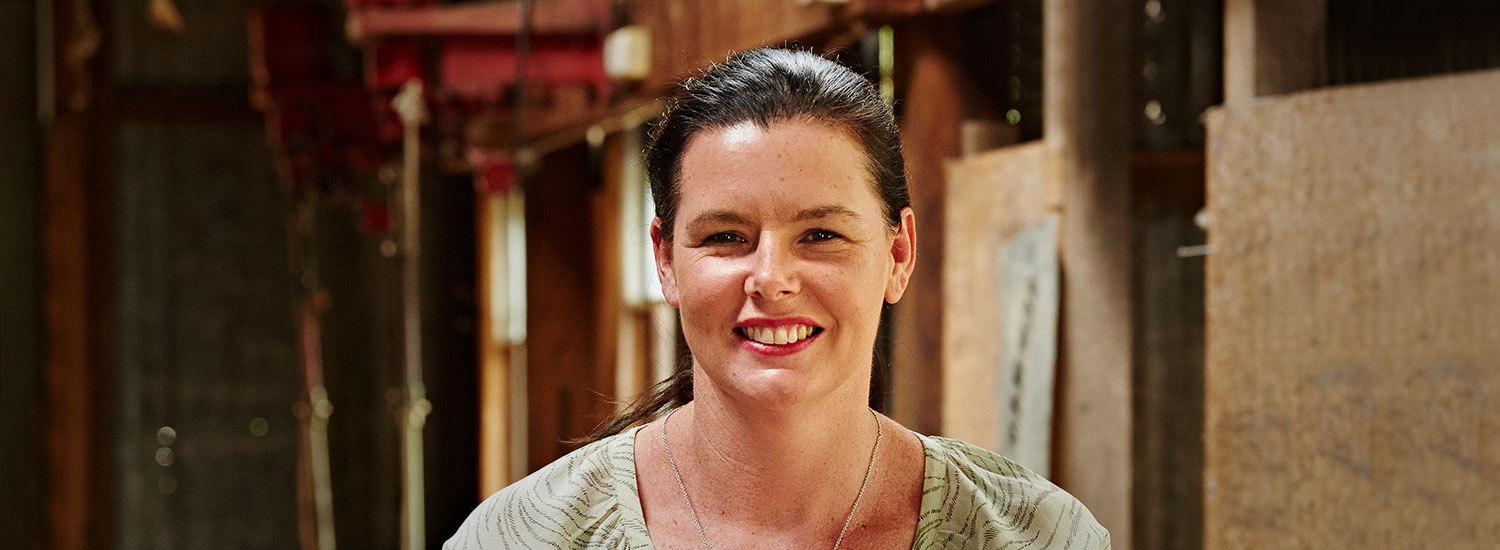
They say it takes 10,000 hours to master something, but what they don’t tell you is how much heart, sacrifice and grit you have to put in alongside those hours.
If it’s true that anyone can learn a skill, it’s also true that a real, visceral passion for what you do helps time go faster, softens the blows and makes the wins that much sweeter.
In honour of this year’s International Women’s Day we chatted to Sooz Gall, redhanded’s CEO Jim Gall’s entrepreneurial, boss-lady wife and Director of Faithfull’s Creek Pastoral Company – a beautiful sheep farm in Euroa, north-east Victoria.
In 2018, the AG industry in Australia is made up of men and women in almost equal measure*, yet the highest positions are still dominated by men. Sooz Gall discusses what it means to work in such a male-lead industry, and how she’s been able to manage her farm successfully thus far.

RH: The alarm rings at 6 am and ….
SG: … well… every day is different! I could be meeting with the shearing team before their day kicks off, mustering lambs to weigh before going to market, checking on livestock during lambing season, assisting with birthing or injections… You never know!
RH: How did you find yourself on a farm?
SG: Jim and I always wanted to own our own farm, and six years ago we made it happen. The land was first settled by the Gall family in 1848, and in fact our current property neighbours Jim’s family farm. My twin daughters have the luxury of having their grandparents next door, and that’s so lucky.
RH: Yours is quite a physical job, and not just for a woman….
SG: It is quite physical at times, but I find that very rewarding and beneficial to health, wellbeing and fitness. It’s a refreshing environment, and we sometimes work under exhilarating conditions (freezing cold mornings, floods and stormy weather!). A welcome contrast to my previous 20-year career in publishing and media, particularly the glamorous publishing world of ACP.
RH: If your daughters wanted to get in this line of work, would you encourage or dissuade them?
SG: Farming on our home property demonstrates to our daughters that the industry is not just for men as traditionally viewed, and also more broadly demonstrates that women are equivalent to men. I guess in a way it’s about leading by example; they will see that no industry is a hurdle for women, but rather an opportunity to make it their own. Farming has provided a vital path after my previous career in publishing, which has led to invitations to the Parliament House for a women’s forum, being nominated Landcare president for a few years, and investing and setting up a new co-working office space business in a historic Euroa building, aimed at improving the perception and professional approach to agriculture and other industries in country towns.
RH: Do you find it challenging being a woman working in a predominantly male field?
SG: Absolutely! Men don’t like to be managed by women and, culturally, it is not their preference to work for you in the farming industry. Patronising behaviour and chauvinism are very prevalent, but being Landcare President has really helped, and – of course- having my husband always in my corner.

RH: How do you feel about the future of agriculture and farming in Australia?
SG: Food is our future and producing premium food is what I am passionate about. Strong animal health practices and quality pasture for our livestock are paramount, and are innate to women in the industry who tend to bring a more nurturing approach to things.

RH: What’s something people might not know about women in farming?
SG: Women bring a different perspective to farming. They ask different questions, they are interested in different things, they want to understand things at a more layered level. Our female Best Wool Best Lamb group is a testament to this, and we share and learn things together, workshop our challenges and support each other in what we are trying to achieve. It’s an unspoken respect and support that we all appreciate.
RH: What’s your fondest memory of life on your farm?
SG: Whenever we have ‘city’ people over I always feel so proud of what we do. We have had Kubota TV commercials shot at our property, some 50 people roaming around and just taking in this foreign landscape… which is home to us!

RH: What’s the one thing you love most about it, that has made it worthwhile this whole time?
SG: Lifestyle and family moments! Bonfires, nurturing animals, feeding livestock all together, picnics, drinks with family and friends who stay over… More and more young people are moving to our Euroa from the city to have the best of both worlds, being in the country and only two hours away from Melbourne. Why wouldn’t you do it!
*http://www.futuredirections.org.au/publication/empowering-women-in-agriculture-australia-and-beyond/